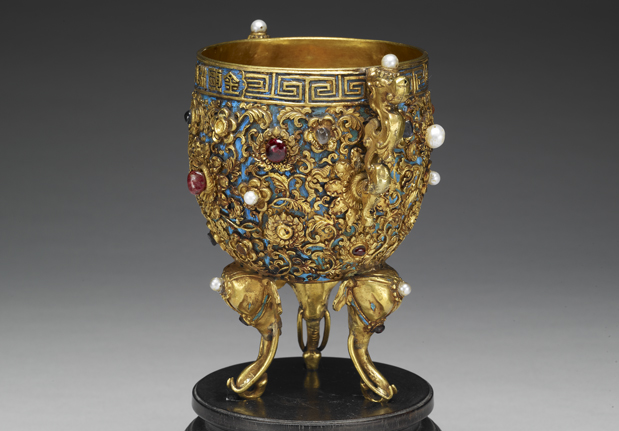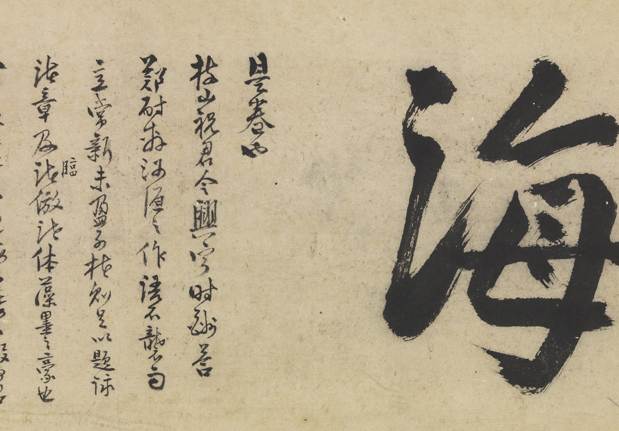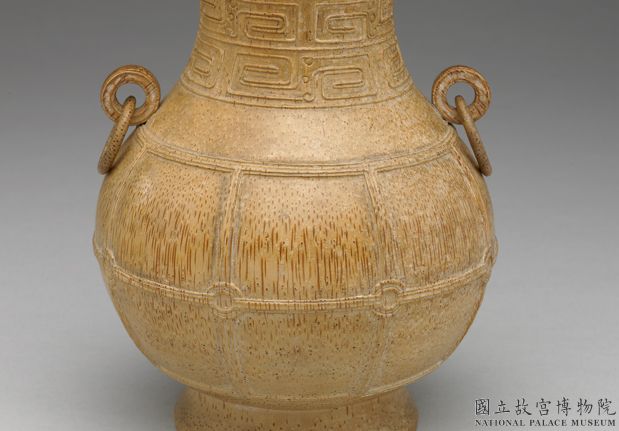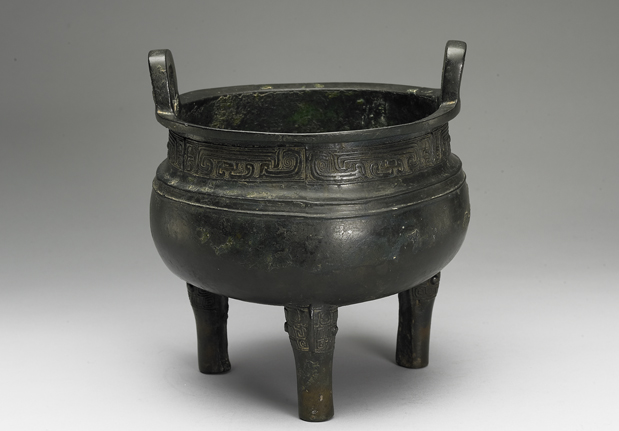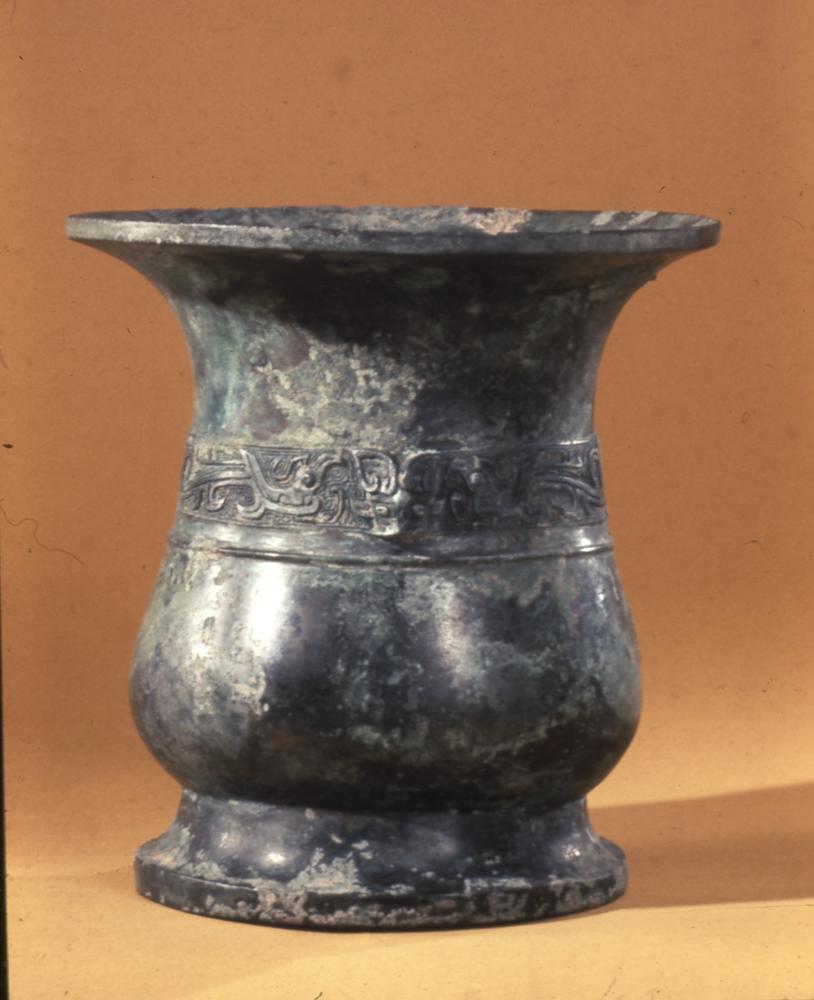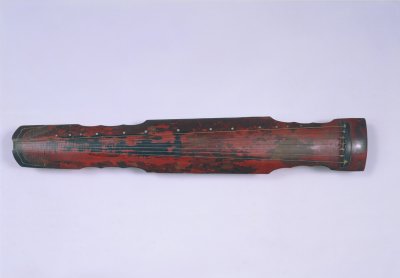Period:Unknown Production date:1833-1834 (c.)
Materials:paper
Technique:woodblock, colour,
Subjects:literature equestrian
Dimensions:Height: 50.30 centimetres (Print) Height: 68.50 centimetres (mount) Width: 22.70 centimetres (Print) Width: 50.60 centimetres (mount)
Description:
Colour woodblock print, diptych. Poem by Cui Guofu about a young man who lost his riding crop in a brothel district and the next morning had to use a willow-branch as a whip; servant in distance, fisherman on shore. From a series of ten prints based on well-known Chinese and Japanese poems. Inscribed, signed, marked and sealed.
IMG
![图片[1]-diptych print BM-1906-1220-0.571-China Archive](https://chinaarchive.net/Unknown/43/mid_00605494_001.jpg)
![图片[2]-diptych print BM-1906-1220-0.571-China Archive](https://chinaarchive.net/Unknown/43/mid_00605490_001.jpg)
![图片[3]-diptych print BM-1906-1220-0.571-China Archive](https://chinaarchive.net/Unknown/43/mid_00605493_001.jpg)
![图片[4]-diptych print BM-1906-1220-0.571-China Archive](https://chinaarchive.net/Unknown/43/mid_01490288_001.jpg)
Comments:Smith 1988Another print from the series of ten entitled ‘A Realistic Mirror of Poets’, based on well-known Chinese and Japanese poems. In several of this series Hokusai favoured a combination of the new Prussian blue and the old red vegetable dye ‘beni’. The subject here is based on the story of the Han-dynasty Chinese poet Cui Guofu who lost his whip in the capital of Chang’an and used a willow-branch instead. The signature is ‘Brushed by the former Hokusai, changing his name to Iitsu’. Clark 2017Classical Chinese poets occasionally composed verses inspired by ancient folk songs (yuefu). Cui Guofu’s (active early ad 700s) version of the ‘Youth’s Song’ has a wealthy young man recalling a misadventure in the brothel district of Zhangtai, where on his way home he had to substitute a willow branch for his lost riding crop. ‘Roadside’ in the poem refers to the brothels and their courtesans: ‘I’d lost my coral riding crop, / and my white horse tossed his head and balked / so I plucked a strand of Zhangtai willow: / the roadside in the spring sun has its charm’ (trans. Alfred Haft). The poem appears in Illustrated Anthology of Tang Poetry, part 1, volume 2 (1788). Hokusai shows the stubborn horse, the youth brandishing a willow branch, his servant, and a local fisherman who has surely seen it all before. The winding waterside path leads the eye through the design.
Materials:paper
Technique:woodblock, colour,
Subjects:literature equestrian
Dimensions:Height: 50.30 centimetres (Print) Height: 68.50 centimetres (mount) Width: 22.70 centimetres (Print) Width: 50.60 centimetres (mount)
Description:
Colour woodblock print, diptych. Poem by Cui Guofu about a young man who lost his riding crop in a brothel district and the next morning had to use a willow-branch as a whip; servant in distance, fisherman on shore. From a series of ten prints based on well-known Chinese and Japanese poems. Inscribed, signed, marked and sealed.
IMG
![图片[1]-diptych print BM-1906-1220-0.571-China Archive](https://chinaarchive.net/Unknown/43/mid_00605494_001.jpg)
![图片[2]-diptych print BM-1906-1220-0.571-China Archive](https://chinaarchive.net/Unknown/43/mid_00605490_001.jpg)
![图片[3]-diptych print BM-1906-1220-0.571-China Archive](https://chinaarchive.net/Unknown/43/mid_00605493_001.jpg)
![图片[4]-diptych print BM-1906-1220-0.571-China Archive](https://chinaarchive.net/Unknown/43/mid_01490288_001.jpg)
Comments:Smith 1988Another print from the series of ten entitled ‘A Realistic Mirror of Poets’, based on well-known Chinese and Japanese poems. In several of this series Hokusai favoured a combination of the new Prussian blue and the old red vegetable dye ‘beni’. The subject here is based on the story of the Han-dynasty Chinese poet Cui Guofu who lost his whip in the capital of Chang’an and used a willow-branch instead. The signature is ‘Brushed by the former Hokusai, changing his name to Iitsu’. Clark 2017Classical Chinese poets occasionally composed verses inspired by ancient folk songs (yuefu). Cui Guofu’s (active early ad 700s) version of the ‘Youth’s Song’ has a wealthy young man recalling a misadventure in the brothel district of Zhangtai, where on his way home he had to substitute a willow branch for his lost riding crop. ‘Roadside’ in the poem refers to the brothels and their courtesans: ‘I’d lost my coral riding crop, / and my white horse tossed his head and balked / so I plucked a strand of Zhangtai willow: / the roadside in the spring sun has its charm’ (trans. Alfred Haft). The poem appears in Illustrated Anthology of Tang Poetry, part 1, volume 2 (1788). Hokusai shows the stubborn horse, the youth brandishing a willow branch, his servant, and a local fisherman who has surely seen it all before. The winding waterside path leads the eye through the design.
© Copyright
The copyright of the article belongs to the author, please keep the original link for reprinting.
THE END
